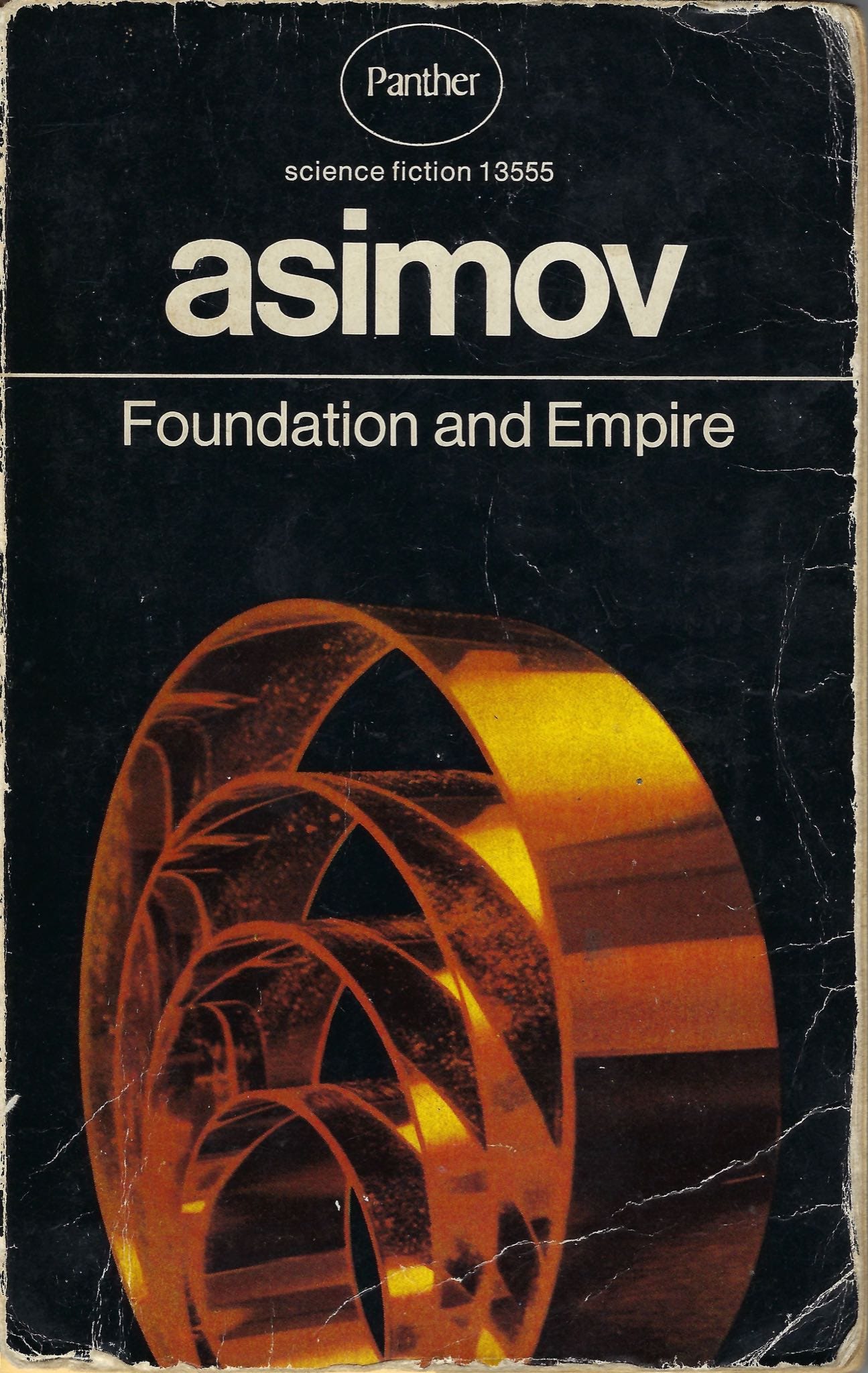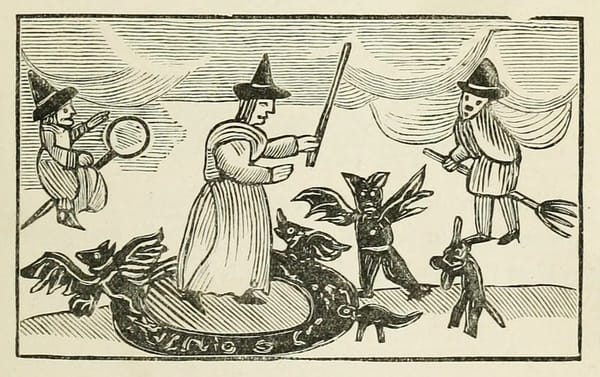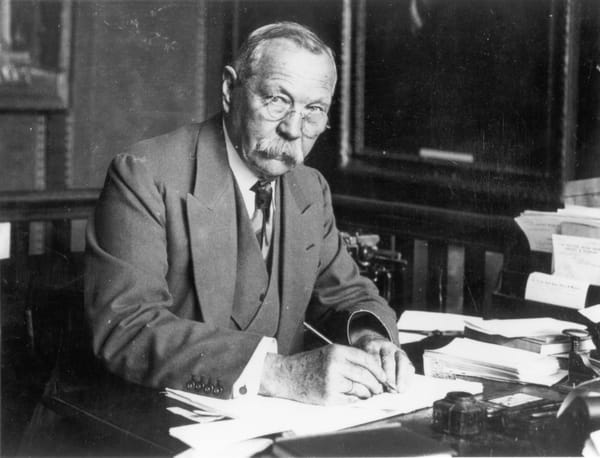Note 42: Will the future will be more "Foundation" or "The Walking Dead"?
On being on #TeamEverythingWillBeOkay.
This last week was our last week of on-the-water sailing classes at Crew U. On Tuesday, the entire class (about 40 people) were split up among several boats and we got to race each other to understand what the racing experience was about - for those of us who have yet to jump on a Beercan Race this summer.

In my case, I was placed on a One-Design 35 named “Heartbreaker”, which was pretty uniquely configured to give the crew a few more options for sail control and customization than on some of the other boats that I’ve been on this summer. This is the same boat we were on last week, and it’s a fast and tipsy boat (hiking wasn’t optional), and we ended up finishing the race ahead of our other classmates. I say “finished” and not “won” because we were racing a variety of other boat models, and different models and configurations are handicapped to different extents. This consists of multiplying a handicap factor against a boat’s recorded time. This keeps racing interesting for those with other kinds of boats, when apples-to-apples racing against a similarly-configured craft isn’t necessarily possible all the time.
Next Tuesday, we’ll have our final class (on the ground) which will consist of our final exam and “graduation”. After that, I’ll have my Tuesday evenings free once more, and I’ll be looking to shift my summer sailing from Tuesday classes to Wednesday races to see what I’ve learned and to lock-in some of the skills that I’ve picked up. But before I do that, I need to pick up some knee pads, as I’m not as limber and lithe as I used to be when it comes to launching myself across the deck to trim the jib or gybe a spinnaker.
Hari Seldon vs. Rick Grimes
In the past couple of weeks, in several of my online conversations, I’ve emerged as a Stephen Pinker-esque commenter on Facebook and other online forums making the case that the world isn’t ending and people still have agency to do something useful when it comes enacting positive change. Over at The Racket News, I’ll make the case that “no, Biden hasn’t ruined the country and is not on track for doing so” and that a nation that survived the Trump administration will have no problem remaining intact through the current Democratic team’s time in power. Over at Facebook, I’m the fellow making the argument that we haven’t crossed the event horizon when it comes to climate change and pollution that will usher in the extinction of the human race.
To be 100% clear, my pushing back against apocalyptic narratives isn’t me taking the complete opposite position that everything’s fine and we don’t need to do anything, but rather that while there’s plenty of work for us to do, we still have it in ourselves to do it, instead of resigning ourselves to our doom like Pompeiians staring down Mount Vesuvius. And to be completely honest, were I a villager that happened to be poorly situated in the home of a future magma flow, I’d probably continue to protest that we still options to execute until the lava proved me otherwise. It seems like a more productive stance that might pay off more often (some small percentage of the time) than resignation (no percentage of the time).
Perhaps it’s because I re-watched the trailer to Apple TV’s upcoming “Foundation” adaptation, that how we face adversity is on my mind this week:
For those of you unfamiliar with Asimov’s saga, I’m going to spoil it for you so that I can continue this discussion. Spoilers will be in blockqoutes below, if you’re seriously worried about ruining the plot of a story that will turn 70 next year.
Spoilers in T-minus 5…
4…
3…
2…
1…
The central theme in the “Foundation” books is how an interstellar civilization collapses and rebuilds itself over a period of centuries. A “psychohistorian” named Hari Seldon develops the necessary math and statistics to predict that the Empire at the beginning of the story is due to collapse within three centuries, and after that will follow a period of war and darkness until humanity re-assembles itself and re-establishes a comparable civilization many centuries later. The collapse is not avoidable, nor is the dark age that follows. However, by assembling, preserving, and protecting the collective knowledge of humanity in the titular “Foundation”, the dark age before the next “enlightenment” can be reduced from 30 millennia to a single millennium.
The story itself (spread over several volumes) takes many twist and turns from Seldon’s original “1,000 Year Plan”. (Or does it? You’ll have to read to find out.) However the core values being pushed by the initial founders of the Foundation are those of taking initiative and responding proactively to what is to come. They cannot prevent their inevitable future, but they can steer it in a direction so that it’s less terrible. (Or do they? You’ll have to read to find out.)
This apocalyptic storytelling is at odds with another apocalyptic vision, Robert Kirkman’s “The Walking Dead”:
Through no fault of his own, Georgia state trooper Rick Grimes is injured on the job and wakes up in a hospital after the zombie apocalypse has largely consumed the world. Over a course of several seasons, he assembles a shifting group of survivors and leads them from one trial to another in order to first survive, and then eventually begin rebuilding human civilization. Where Hari Seldon had time to see doom coming and prepare for it, Rick Grimes wakes up in the middle of it and basically serves as a narrative pinball, bouncing between situations outside his control and it takes Rick about half a decade to go from being a purely reactionary figure to one building something that outlasts himself in the form of the Coalition - a loose collection of formerly-American city-states that band together to resist outside threats.
So, it’s those two apocalyptic poles that I have in mind when I think about thinking about all the bad crap coming our way in the future. We can either be Rick Grimes and deal with it as it comes towards us in a very present-oriented mental state, or we can be Hari Seldon in a future-oriented stance, acknowledging and accepting what we are unable to change, yet seeking opportunities where we can change things by finding opportunities to magnify the effects of small actions in the present that pay off big in the future. While we can’t yet say how TV Rick’s fate plays out, it’s going to be extremely difficult to match Seldon’s contributions (29 millennia of dark ages prevented), mainly because Seldon started making small movements earlier than Rick was capable of doing.
I know that this is not an apples-to-apples comparison between fictional characters (Hari Seldon would have likely become zombie fodder in the world of Rick Grimes), but it seems like a useful thinking tool for deciding one’s stance toward environmental and climate changes, political currents, and other contentious issues. It’s also a useful tool to help think about which actions are worth taking in one’s lifetime and which actions are worth starting in one’s lifetime that you won’t see to completion, but lays the foundation for more meaningful changes down the road. On the environmental front, I can see a Rick Grimes taking direct straightforward actions like banning plastic containers, implementing carbon taxes, and stuff like that. In contrast, I can see a Hari Seldon attempting to get at the root causes of the catastrophe and developing and promoting economic systems that thrive with stable populations (no more “we’ll grow our way out of trouble”) and promoting space colonization and development as a method of pushing our way up the sustainable technology tree with economic incentives that plain environmentalism is simply unable to muster.
The point of this discussion isn’t to say that one approach is better than the other, but rather to illustrate different possible modes that can be used to attack a problem. If you’re attacking a tractable problem that can be confidently solved with small-to-medium sized solutions, then be a Rick Grimes. If the problem is larger than your ability to meaningfully affect, or you don’t have confidence that your actions - even if executed perfectly - will contribute a meaningful amount to the solution, then see if you can be a Hari Seldon.
Foundation and Grand Old Party
One other aspect of “Foundation” that was strangely relevant this week is the notion of the period of time a group has to spend “in the wilderness” before it can return to its former power and glory. Over at The Racket News, a decent conversational thread emerged after I pointed out that if the GOP wins additional seats in the Senate and the House next cycle, that’ll reinforce the madness that the party is currently engulfed in, and victory will not return them back to the sane classic Republicans of old. One of the commenters called me out on this - questioning why I would endorse Democratic crackpots over Republican crackpots - and I replied that I thought that the party was salvageable, but not without a period where it can burn away the corruption of Trumpism, QAnon, fake stolen elections, and waging stupid culture wars instead of creating better cultures.
Now, to be honest, I’m not sure if the GOP is recoverable in any amount of time and that the rot that’s set in isn’t permanent. However, of the two parties, at least the GOP still pays a little lip service to individual initiative, markets, and classical (Lockean) liberalism. Now, I don’t know if those tremors are simple leftover effects from the party’s previous fusionist construction, or if there remains something left in the party (not unlike Darth Vader) that can steer it away from its current populist Nanny State, But For Guys That Make Videos in Trucks direction. In any case, I’m willing to see how this plays out and continue supporting The Party That Was, by not supporting The Party That Is. I hope that repeated electoral losses drive home a message that there are plenty of Americans that basically want to be left alone and free to govern themselves locally, but not at the expense of empowering fools and charlatans who will act just like the worst Democrats, but without a mediating influence to temper their behavior.

I don’t know if this will work out in the end, but it echoes heavily the chapters of the Foundation story where the Empire that the Foundation is basically attempting to preserve turns against Hari Seldon’s encyclopedists. The bookworms (more accurately, the very capable descendants of the original bookworms) are forced to put down what they’ve been working for generations to protect in order to preserve it for later. The current conflict within the GOP seems to have a very similar character, and I’m firmly in the camp of burning it down so that we can plant a better party that may grow from the former’s ashes.
Interesting reads
Microsoft is bringing Android apps to Windows 11 with Amazon’s Appstore (The Verge)
Virgin Galactic Gets Official Clearance to Start Flying Paying Customers to Space (Gizmodo)
The airwaves of Navajo Nation (The Verge)
To the Man Who Shouted at Me About Stolen Elections (The Bulwark)
Ghost kitchens: Should your neighborhood be afraid? (FOX 32 Chicago)
Twilio, Asana to List on Long-Term Stock Exchange as ESG Push Continues (Wall Street Journal)
If I didn’t do enough Asimov geeking in this newsletter and you’re thirsting for a bit more, be sure to check out this season’s “Mythic Quest”:
The science fiction grandmaster shows up in a very key plot point a little over half-way through the season. You won’t be disappointed.



